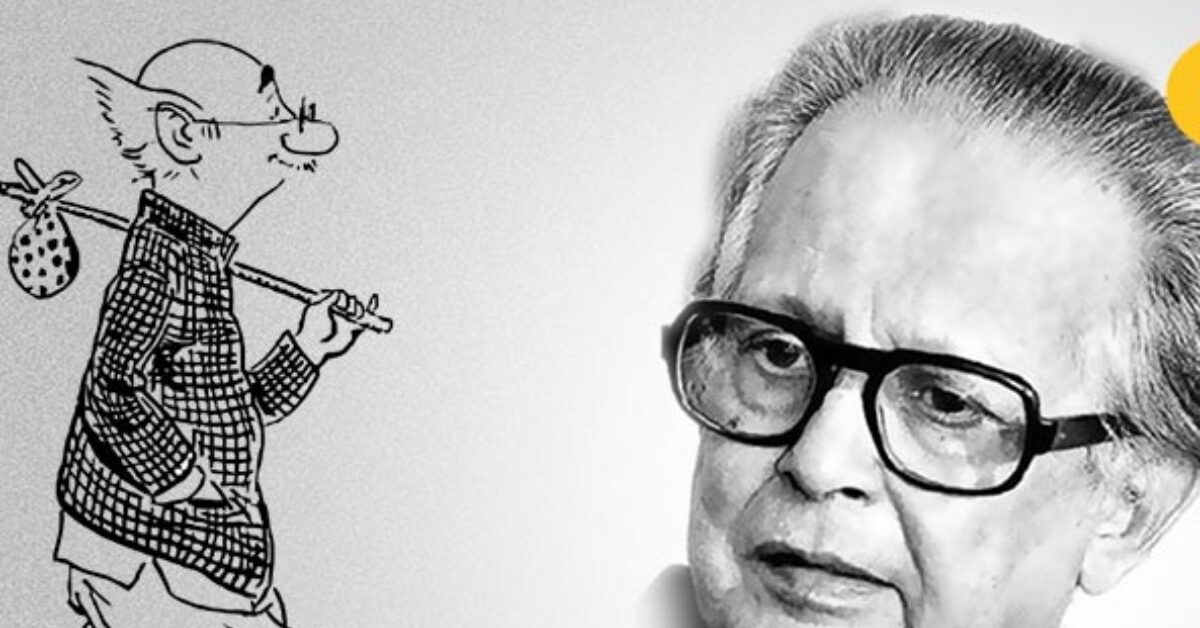Essay – R.K. Laxman
Imagine a time when cartoons were not just about giggles but also provoked thought and introspection. This was the magic of R.K. Laxman the genius behind some of India’s most iconic and thought-provoking cartoons. Born in Mysore in 1921 Laxman’s family was already artistic with his brother being the famous author R.K. Narayan. Growing up amidst the turmoil of pre-independence India Laxman’s cartoons would soon become a mirror reflecting the hopes and struggles of the common people.
Laxman’s most iconic creation – The Common Man emerged in the 1950s. It embodied the voiceless ordinary Indian grappling with the complexities of a rapidly evolving nation. With a simple checked coat and a bewildered expression The Common Man symbolized the hopes struggles and resilience of the Indian masses. Laxman ingeniously used this character to satirize the political climate bureaucratic red tape and societal paradoxes endowing his cartoons with a universal appeal that transcended language and cultural barriers.
Laxman’s cartoons were not merely a source of amusement they were potent tools for social and political critique. His subtle commentary on corruption bureaucracy and socio-economic disparities challenged the status quo prompting introspection and debate. He fearlessly portrayed the flaws within the Indian system advocating for transparency accountability and social justice. Through his art, Laxman provoked thoughtful discussions urging people to question authority and demand fair governance.
R.K. Laxman’s impact went far beyond the realm of cartoons it touched various forms of art and social commentary. His unwavering commitment to truth and his ability to capture the essence of the Indian experience made him a national treasure. The Common Man became an iconic symbol of resilience and peaceful protest, inspiring future generations of artists and activists to use their creative talents to drive change.
R.K. Laxman’s cartoons were more than just ink on paper they were a reflection of the soul of India. He made people laugh but he also made them think. Through his work he brought to light the struggles and aspirations of the everyday Indian giving a voice to the voiceless. Even though he is no longer with us his legacy continues to live on reminding us of the power of humor in bringing about change and fostering a more compassionate society.
Visit our Facebook Page : Little Authors | Facebook

